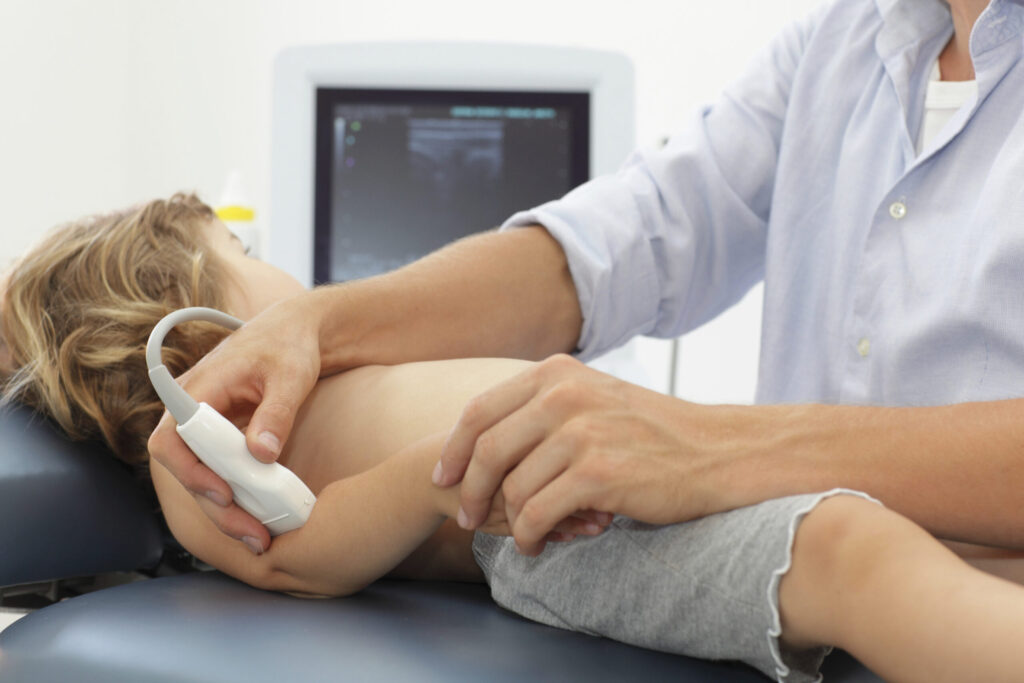Introduction: Pediatric orthopedic surgeons play a vital role in the healthcare of children, specializing in the diagnosis and treatment of musculoskeletal conditions in infants, children, and adolescents. These medical professionals, such as Dr. Sameer Desai in Pune, possess the expertise and training to address various orthopedic issues specific to the pediatric population. This blog aims to shed light on the important role pediatric orthopedic surgeons play in ensuring children\’s well-being and proper development.
What is Pediatric Orthopedics? Pediatric orthopedics is a specialized branch of medicine focused on the diagnosis, treatment, and management of musculoskeletal disorders in children. These disorders may include congenital abnormalities, growth plate injuries, bone and joint infections, fractures, scoliosis, clubfoot, and other conditions affecting the bones, joints, muscles, and ligaments. A pediatric orthopedic surgeon is trained to provide comprehensive care, from the initial evaluation and diagnosis to surgical intervention and follow-up care.
The Role of a Pediatric Orthopedic Surgeon:
- Diagnosis and Evaluation: Pediatric orthopedic surgeons are skilled in assessing and diagnosing musculoskeletal conditions in children. They use a combination of physical examinations, medical history analysis, and diagnostic tests such as X-rays, MRIs, and CT scans to determine the underlying cause of the problem accurately. Their expertise allows them to identify and differentiate between growth-related issues and more serious conditions requiring immediate attention.
- Treatment Planning: Once a diagnosis is made, the pediatric orthopedic surgeon collaborates with the child\’s family to develop a personalized treatment plan. Depending on the condition, treatment options may range from non-surgical interventions such as physical therapy, braces, and casting, to surgical procedures. The surgeon educates the family about each treatment option\’s potential risks, benefits, and long-term implications, empowering them to make informed decisions regarding their child\’s healthcare.
- Surgical Interventions: When surgical intervention is necessary, the pediatric orthopedic surgeon performs the procedure using specialized techniques and equipment tailored to the unique needs of growing children. They are skilled in addressing complex issues like limb length discrepancies, scoliosis correction, hip dysplasia, and other congenital abnormalities. Their expertise extends to minimally invasive surgeries, which reduce scarring, pain, and recovery time, enhancing the overall experience for the child and their family.
- Long-Term Management: The role of a pediatric orthopedic surgeon extends beyond the operating room. They provide ongoing care and management of the child\’s condition throughout their growth and development. Regular follow-up visits, monitoring of progress, and adjustments to the treatment plan are essential to ensure optimal outcomes. The surgeon works closely with other healthcare professionals, including physical therapists, occupational therapists, and pediatricians, to provide comprehensive care and support.
Conclusion:
Pediatric orthopedic surgeons, such as Dr. Sameer Desai in Pune, play a crucial role in the healthcare of children with musculoskeletal conditions. Their expertise, combined with a compassionate approach, ensures that children receive the best possible care from diagnosis to treatment and long-term management. With their specialized knowledge and experience, pediatric orthopedic surgeons contribute significantly to improving young patients\’ quality of life and overall well-being, allowing them to grow and thrive.
Disclaimer: This blog is for informational purposes only and should not be considered medical advice. If you have concerns about your child\’s health, please consult a qualified healthcare professional.

